North Korean authorities have announced an ambitious development project for the east coast city of Wonsan that will include the construction of an underwater hotel, according to the state-owned media outlet The Pyongyang Times.
The plan, which focuses on the construction of infrastructure and buildings primarily related to the leisure sector, will see Wonsan become a “tourist city”.
“Underwater hotel, flower park, international meeting hall, exhibition and exposition hall, stadium and development areas will be built on the Kalma Peninsula,” the article said, adding that “towers and other modern-style buildings” would be constructed in “large numbers” in a downtown area.
Andrea Lee of the New Jersey-based state-sanctioned North Korea tour company Uri Tours confirmed the existence of plans to NK News in an email last week.
“We have confirmed with our local partners in Pyongyang that there are indeed plans to build an underwater hotel in Wonsan,” Lee said, adding that “local authorities are now in discussions on how to build the hotel”.
Tourism ahead of aid
The emergence of the ambitious Wonsan development plan, reportedly signed-off on in November 2013, comes just two months after World Food Program (WFP) Executive Director Ertharin Cousin told reporters in Seoul that the viability of North Korea aid programmes was being threatened due to a “critical” lack of funding. Significant investment in leisure and tourist facilities are becoming a hallmark of Kim Jong-un’s leadership.
“The last thing the hungry people of North Korea need is an underwater hotel that is, at best, years from seeing its first guest,” Joshua Stanton, author of the One Free Korea blog, told NK News by email.
The last thing the hungry people of North Korea need is an underwater hotel
“North Korea is not a poor country, and hunger there is the direct consequence of Kim Jong-un’s choices,” said Stanton, adding that he was unsure if North Korea was serious about the project, or where the funds for it would come from.
“Projects like this one may help explain why foreign donors are giving up [on North Korea aid programmes], given that Kim Jong-un could easily fund the WFP’s entire $200m, two-year feeding program out-of-pocket,” Stanton claims.
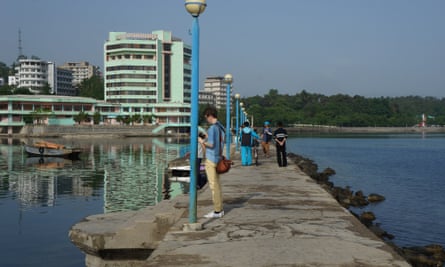
Leonid Petrov, a researcher at the Australian National University (ANU), mocked the contradictions between increased investment in the DPRK tourism industry at a time when North Korea has been simultaneously arresting foreign visitors.
“Underwater hotels are the most suitable form of tourist accommodation for North Korea", said Petrov. “As a foreign tourist you won’t be able to escape. You will not be able to see anything that happens outside of your hotel room or sneak a photo from your window."
“Keeping foreign guests in aquariums is a perfect Orwellian solution for isolating them from the locals while maximising cash revenue,” Petrov said.
The construction of underwater hotels is a relatively new development in the global hotel industry, with only a few examples of small-scale underwater facilities in existence worldwide.
Out of their depth?
While designs for large underwater hotel projects have been publicised in more developed countries, such as the United Arab Emirates, prohibitive construction costs have often meant that elaborate plans were mothballed, with Dubai’s Hydropolis Hotel – estimated to cost some $300 million – being one such example.
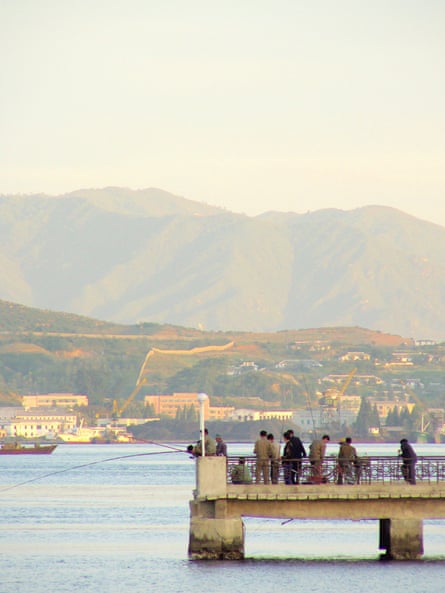
DPRK’s state travel agency, the Korea International Travel Company (KITC), would not provide NK News with details on the funding or scale of the underwater hotel, but previous even small-scale examples of underwater rooms can be extremely expensive to construct.
The Ithaa restaurant in the Maldives, for example, is less than 10 square metres in size and cost around $5m to build. The structure built in Singapore for quality assurance purposes, before being shipped to the Maldives.
It remains to be seen how North Korea will finance construction of the hotel at Wonsan
Given the costly nature of underwater hotel projects, it remains to be seen how North Korea will finance construction of the hotel at Wonsan – though the use of tens of thousands of soldiers to build the recently completed Masikryong ski resort might provide one template.
Plans for the rest of Wonsan
Wonsan has historically been seen as a city geared towards recreation and the details of the Wonsan area development plan is further evidence of this push to transform the area.
“Wonsan is the poster child for North Korea’s initiative to focus more on development outside of Pyongyang,” said Geoffrey K See, managing director of the Singapore NGO Choson Exchange.
“If you look at the new zones that have cropped up since the announcement of the zone plan, only Wonsan and Kangwon have received significant high-level attention and national resources. Aside from its historical role as a recreational town, Wonsan and the surrounding area were chosen because of the desire to diversify sources of investment and income,” See said.
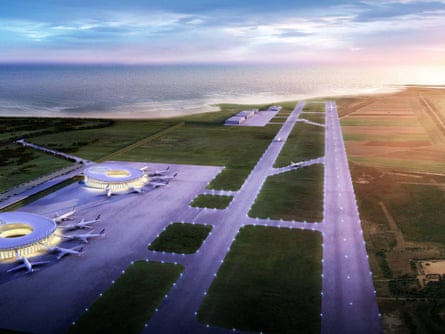
“Its location, far away from the Chinese border, facing South Korea and Japan, means that it is well-positioned geographically to pull in investment and tourist dollars from its two neighbours.”
Despite the fact that tourists from Wonsan’s two closest neighbours – Japan and South Korea – are currently unable to visit the country because of poor diplomatic relations, North Korea seems to be anticipating change ahead.
North Korea seems to be anticipating change ahead
In 2013, NK News obtained architectural designs from Hong Kong-based firm PLT, revealing plans to build a $200 million airport in Wonsan to serve as a major transportation hub for area and the wider 'special tourism zone'.
Despite investment from PLT, construction for the Wonsan International Airport was stalled in July 2013 due to “political instability” and has yet to restart.
Whether the underwater hotel or other elements of the expansive Wonsan development plan will materialise remains to be seen.
“As is often the case in North Korea, they have huge plans that are dependent on a great deal of investment. I’m sure Wonsan will see some of these things pop up, as it seems to be a bit a of a ‘national focus’ to invest in the town,” Andray Abrahamian, executive director at Choson Exchange told NK News.
A version of this article first appeared on NK News – a North Korea focused specialist news site
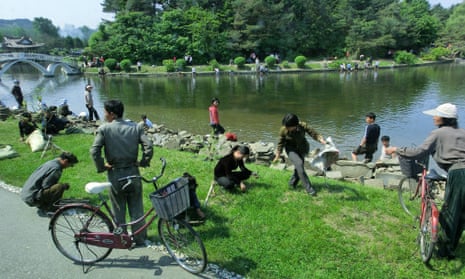

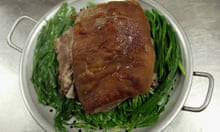
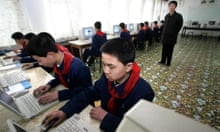

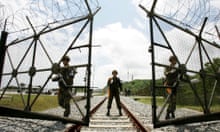
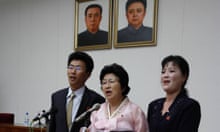
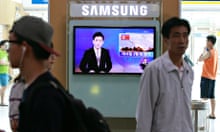
Comments (…)
Sign in or create your Guardian account to join the discussion